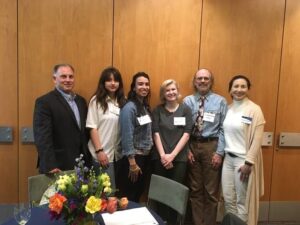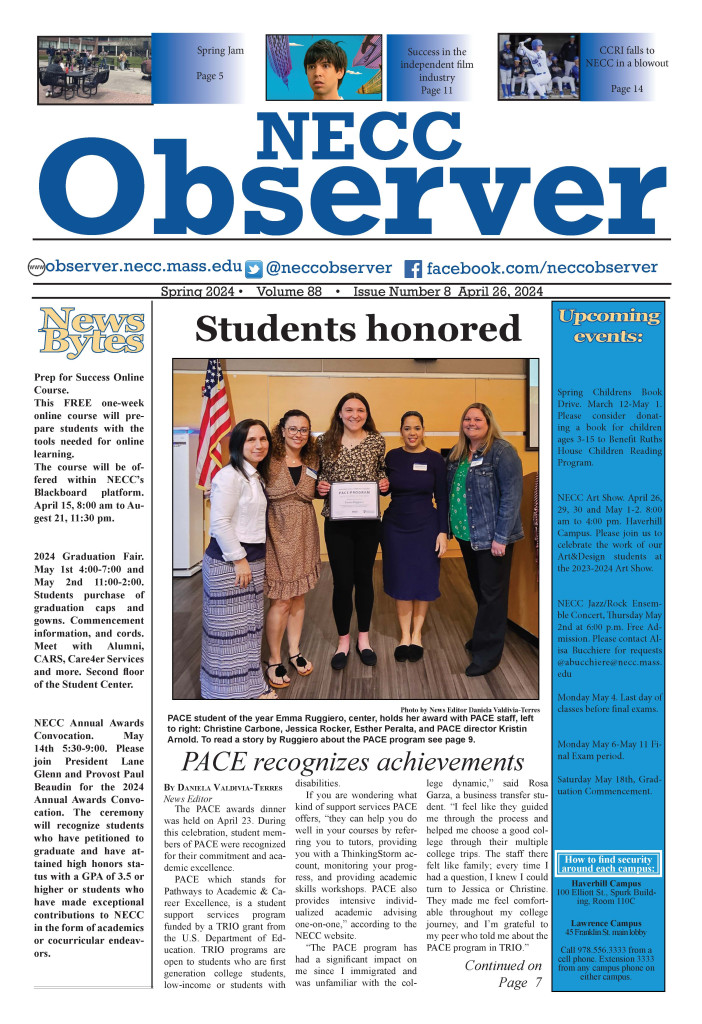College life has been turned upside down since the pandemic struck. Rather than sitting at classroom desks many students are learning from their bedrooms or kitchen tables. There are thousands of college students not able to go anywhere to study in a quiet environment during the pandemic. There are some Northern Essex Community College students facing this as well and they are having to adjust in many ways to this new learning approach.
Marriam Saldivar is a student from Northern Essex Community College. Her major is journalism/communications and she is from the Domincan Republic. Saldivar states how she focuses while studying at home. “I make sure to sit at my desk. It’s always been my space for productivity, so it just makes my mind instantly go into that mode. I also music jazz in the background,” she said.
Saldivar states that the most difficult part about studying at home is that “there are way too many distractions. I’m not in the environment that I’ve always been used to when it comes to doing what students do.”
Not being in a traditional college environment can make students lose focus and not concentrate as well.
Many things can distract students in their environment. Saldivar said, ‘My phone, to be specific I get distracted by YouTube videos and my friends texting.”
Electronic devices can cause a major distraction while studying as well social media. Being focused is important while studying. It can increase your knowledge while working.
“I always write a to-do list every day of the assignments I gotta do and the jazz music just helps with allowing my mind to stay clear. Without it, I just get a headache,” she said. Having a clear brain can help students stay focused better during these trying times.
Another student from Northern Essex Community College, Erik Terrio who majors in journalism/communications and comes from Haverhill shared how he focuses while being at home.
“I usually put my headphones on and listen to some music. I block out the distracting noises and it energizes me,” he said. Music can help many students stay focused and help stay on track while doing work.
The most difficult part of studying at home for Terrio is the change in setting. He explains, “I would say the hardest part is that it is a distracting environment. There are too many things around that take me out of school mode and put me into relaxation and chill.”
The environment can make a big impact on how students concentrate while studying. Terrio states what gets him distracted when he is studying. “Could be the dog barking or a family member asks me something. Or it could be something that I think of and start doing. Like, I remember that I have laundry that needs to be turned over, or I get hungry and cook something, or I start web surfing and get distracted with that.”
Distance learning can come with many distractions that students wouldn’t face in the classroom.
Terrio states what helps him stay focused while studying at home. “I think music makes sure that I am staying healthy, like eating enough and staying hydrated and getting enough sleep. Also making to-do lists helps keep me track and snacks.”
It is very important to stay hydrated to eat well, study helps your brain not lose focus. Students are finding new ways to keep their focus and boost their mental health during this challenging time.
A Northern Essex Community College student Bryan Fernandez, whose major is Journalism/communications and is from Bronx NY, but currently lives in Lawrence.
Fernandez states how he focuses while studying at home. “I have to be at my desk if I’m on my bed or in my living room, or anywhere else. I feel like physically placing myself in my work area is the only way I can do my work. It is all a mindset.’’
Doing work on your desk can help people pay attention to them and keep them concentrating and not getting distracted. Fernandez states where he prefers to study at home or school. “Definitely at school. It is a mindset for me. So physically being in a place where I have no choice but to study is really what works best for me. No distractions or temptations.”
Some people prefer to work in school because they have more support around, such as teachers and tutors than at home. Fernandez states what time of day he prefers to study at night or earlier than the day. “putting my phone on and playing music on my Air pods loudly. Somehow I focus better.”
Not paying attention to your phone and not focusing on any electronics can help is good for your mind.
A lot of NECC students have difficulties focusing while studying at home. All these students faced difficulties in many ways and did many different things to help solve their distractions. This pandemic has forced NECC students to find creative ways to stay on track and keep focused on their work so they don’t fall behind and continue to find success.



